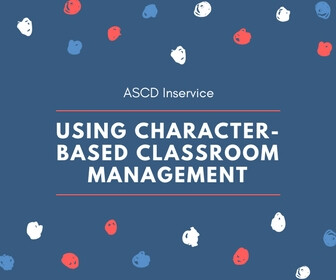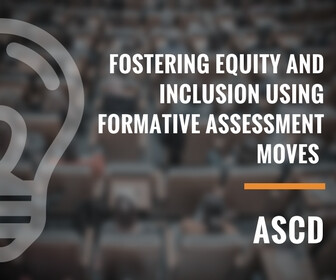Educators can’t teach their students all the things we would like students to learn. There are too many things. Nor can we accurately assess students’ mastery of all the things we would like those students to learn. But because educators so desperately want students to learn scads of worthwhile things, we often allow ourselves to believe that we can both teach and test to ensure our students are achieving at their highest level. We are fooling ourselves.
Schools exist so that students can learn. We want them to learn not only a flock of cognitive skills and bodies of knowledge, but also to acquire a collection of worthwhile affective dispositions, that is, appropriate attitudes, interests, and values. Clearly, the set of eligible curricular aims that might legitimately be pursued is staggeringly large. Indeed, it is the immenseness of what we’d like our students to absorb that causes most educators to trot unthinkingly down a no-win trail.
What gets educators in big trouble is that we want so badly for our students to attain all the marvelous curricular aims that have been identified for them. Although this is an understandable mistake, it is a mistake of major educational significance. Even an intense yearning for students to master more things—important things—than can possibly be mastered in the available instructional time tends to corrupt the clarity of the instructional process. We end up pretending that students can accomplish all the fabulous things we want them to accomplish, and we build educational tests based on that same misguided pretense.
What educators give up when they claim that they are teaching and testing a galaxy of outcomes is clarity of intent. Yet, one of the very most critical attributes of instructional or assessment decision-making is a crisp understanding of what’s to be learned and what’s to be assessed. To sacrifice clarity of intent is, truly, to give up the educational game. We dare not do so.
Over the years, and there has been a gob of those years during my lengthy educational career, I have often found myself moderating the deliberations of a state-appointed committee of experienced teachers and curricular specialists as they attempted to identify what skills or bodies of knowledge should be measured by a high-stakes state test. For example, the committee might be choosing the curricular aims to be measured by the accountability tests that will be employed to evaluate the effectiveness of a state’s schools. Thus, what is assessed by those annual state-wide tests will, over time, surely become emphasized instructionally by a state’s teachers. What’s measured by those tests is instructionally influential.
After lengthy discussions about the strengths and weaknesses of the full range of skills and knowledge that might be assessed in, say, English/language arts at various grade level, the committee is finally asked to choose what is to be measured on the annual tests. Almost without exception, in my experience of moderating more than 20 such content-determination committees for more than a dozen states, the committee members’ preferences for what to assess was always the same. They wanted the new statewide tests to measure everything.
That’s right. Content specialists simply adore their specialization’s content. To eliminate any of this content borders on immorality. After all, in an eighth-grade language arts test, shouldn’t we find out if students really grasp the potential permutations of how to modify gerunds? The consequence of such content-adulation is that few skills or bodies of knowledge are sent to the “Don’t-Test” bin. Because content specialists love darn near everything in their specialties, they often decide that students ought to learn darn near everything. This decision dooms many teachers to instructional ineffectuality.
Ideally, content specialists would be obliged to ingest a few vials of truth serum right before sauntering into a content-determination committee meeting for a high-stakes test. Fortified by such veracity-enhancement medication, most content specialists would accurately assert that, given the instructional time at hand, it is simply impossible to promote students’ mastery of the truly monstrous collections of curricular aims. Whether we refer to these curricular aims as content standards, learning goals, instructional objectives, or intended learning outcomes, by adopting far too many of them, we simply overwhelm not only the students who are supposed to master them but also the teachers who must instruct those students.
What’s needed is a collection of tough-minded educational decision-makers who have the courage to be honest about what can be properly taught and accurately assessed in the available time. It is far better to teach students to master 10 truly significant educational aims—and deeply—than it is to master some but not all from a set of 30 educational aims. Both students and teachers can maintain intellectual track of a manageable number of curricular aims.
For example, several years ago the state of Wyoming chose to measure all its students’ mastery of the identical set of reading competencies at grades 3-11 with the same eight reading skills. It took only two or three years for Wyoming’s teachers and students to grasp the essence of the modest collection of reading skills to be mastered. By prioritizing the state’s reading targets, Wyoming’s state officials provided clarity of intent to their state’s educators and students. Those Wyoming officials had the courage to rank-order an array of potential curricular targets and to choose only the set of targets that could, in truth, be taught in the instructional time at hand.
Moreover, measuring a reasonable number of curricular targets yielded tremendous assessment benefits. Typically, a summative test that’s administered at the close of a school year cannot be diagnostic because it tries to measure students’ mastery of too many skills with too few items specific to these skills. With the Wyoming tests, between 7-10 items per skill gave both teachers and students a reasonably accurate fix on the degree to which a student had mastered each of the eight reading skills. For the following school year, a clear diagnosis of each student’s mastery of the eight reading skills helped the students’ new teachers hit the ground running.
It’s time to wrap up this castigation of educators who believe, often too optimistically, that they teach and test a galaxy of curricular aims. It is time for the nation’s educators to fess up and admit that they’re teaching and testing all the curricular aims in their state’s official collections of content standards. This is simply not so. A consequence of such wishful thinking is the adverse impact that too many curricular targets will have on teachers’ clarity of curricular intent regarding what’s to be learned.
Yet, for the nonce, we seem to be surrounded by official curricular documents suggesting that the architects of those documents have never encountered the concept of prioritization. A state’s gaudy curricular documents, instead, reek of pretension. Would that this were not so.
James Popham is Emeritus Professor in the UCLA Graduate School of Education and Information Studies and author of the soon to be released book Assessment Literacy for Educators in a Hurry.
He has spent most of his career as a teacher, largely at UCLA, where for nearly 30 years he taught courses in instructional methods for prospective teachers and graduate-level courses in evaluation and measurement. At UCLA he won several distinguished teaching awards, and in January 2000, he was recognized by UCLA Today as one of UCLA’s top 20 professors of the 20th century.








